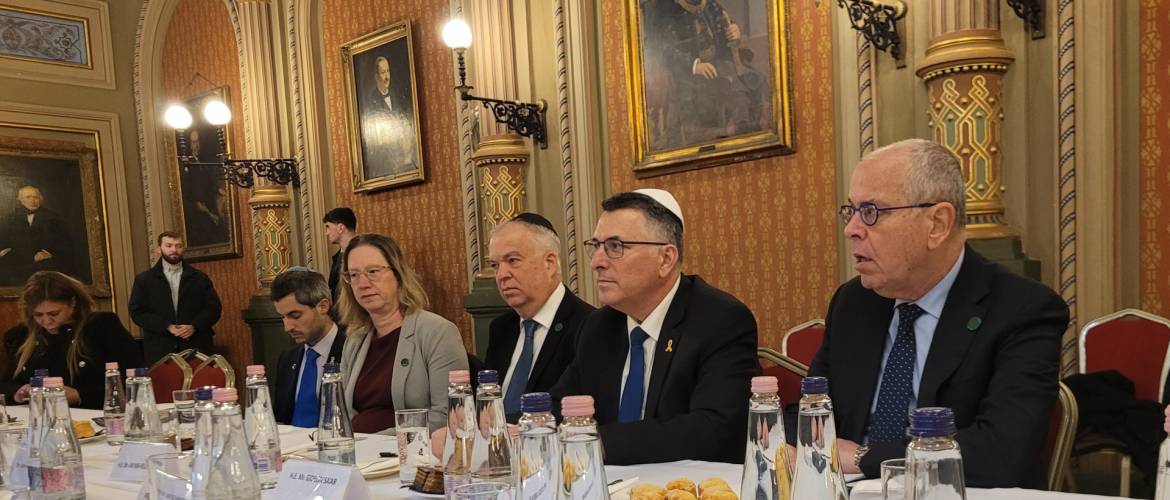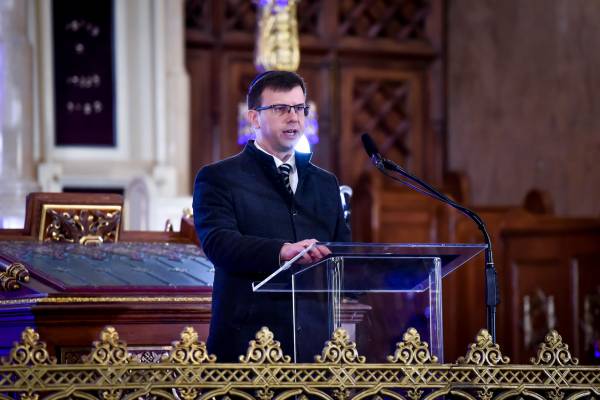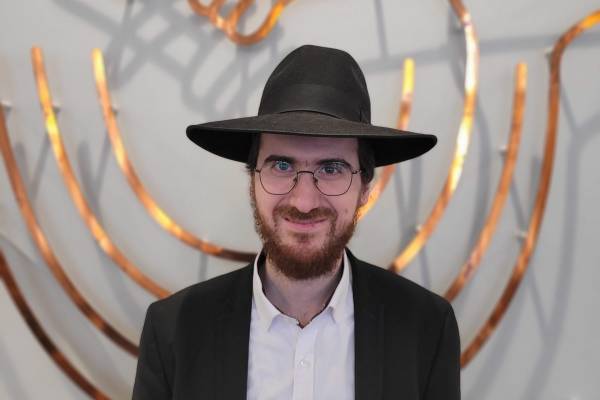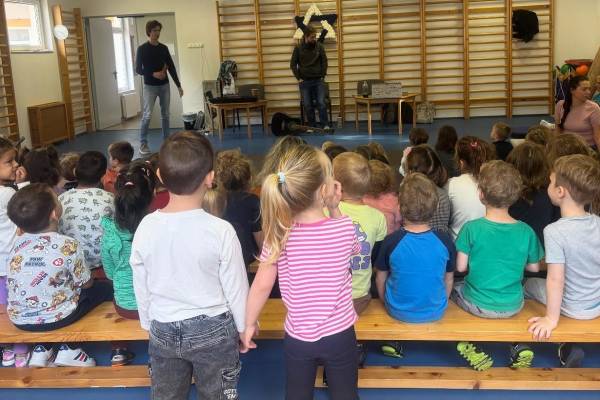"We are all Jews, one people, and if we are to secure the next generation, we must invest in school development, education, and training," said Israeli Foreign Minister Gideon Sa'ar on Thursday during his visit to the headquarters of the Federation of Jewish Communities in Hungary (Mazsihisz). This marked his first official visit to Budapest, where he held discussions with the leadership of Hungary's largest Jewish community.
"It is an honor to welcome the Foreign Minister of Israel today, and particularly as a friend," said Mazsihisz President Prof. Dr. Andor Grósz in his opening remarks. "Minister Sa'ar was among those who personally kept us informed about the situation in Israel following the October 7 attacks."
During the meeting, Prof. Dr. Grósz briefed the minister on the current state of Hungarian Jewry, noting that Hungary has three Jewish denominations, with Mazsihisz representing the majority. He emphasized that following the October 7 attacks, the three denominations agreed to set aside their differences for the duration of the war, stating, "We are committed to maintaining this unity."
Prof. Dr. Grósz highlighted that Mazsihisz, under its new leadership for the past year and a half, strives for political neutrality and fosters relationships with the government and other Jewish denominations based on mutual respect.
The president outlined the organization’s relationship with the Hungarian government, which he said rests on three pillars: the teaching of our sages that Jews should actively contribute to the well-being of the nation in which they live; the Hungarian government’s demonstrated respect for and support of the Hungarian Jewish community and the Hungarian government’s exceptionally positive stance toward the State of Israel.
Prof. Dr. Grósz also shared details of his discussions with Prime Minister Viktor Orbán last year. The prime minister assured his support for several key projects, including the completion of a major investment in the Charity Hospital, the renovation of the Rabbinical Seminary building, and 60% financing for the restoration of the headquarters on Síp Street.
Regarding future goals, Prof. Dr. Grósz stated that Hungary is home to 10,000 to 15,000 religious Jews, while many others identify with their Jewishness culturally. The organization aims to strengthen its religious character by engaging secular Jews and Jewish youth.
In response, Israeli Foreign Minister Sa'ar expressed gratitude for the opportunity to visit the Dohány Street Synagogue and for the insights provided about Hungarian Jewish life. He remarked:
"What you, Hungarian Jews, have done since October 7 mirrors my own actions as an opposition politician. In times like these, I chose to support the Israeli government. We have one destiny, and we must rise above internal struggles and divisions."
He reiterated: "We are all Jews, one people, and to secure our future, we must prioritize school development and education."
The minister praised Mazsihisz’s balanced approach to relations with the Hungarian government:
"The current Hungarian government is among the few that consistently stands with Israel and the Jewish people, which we deeply appreciate. I am also glad to see that in Hungary, the Jewish community is flourishing and living in safety—something not all Jewish communities in Europe enjoy."
Minister Sa'ar concluded by thanking Mazsihisz for its support of Israel, Kibbutz Be’eri, and the families of hostages since October 7. Responding to Prof. Dr. Grósz's closing remark that Mazsihisz would be pleased to welcome him back in quieter times for longer discussions and to visit Jewish communities outside Budapest, the Foreign Minister replied, "I wish we were there already."







